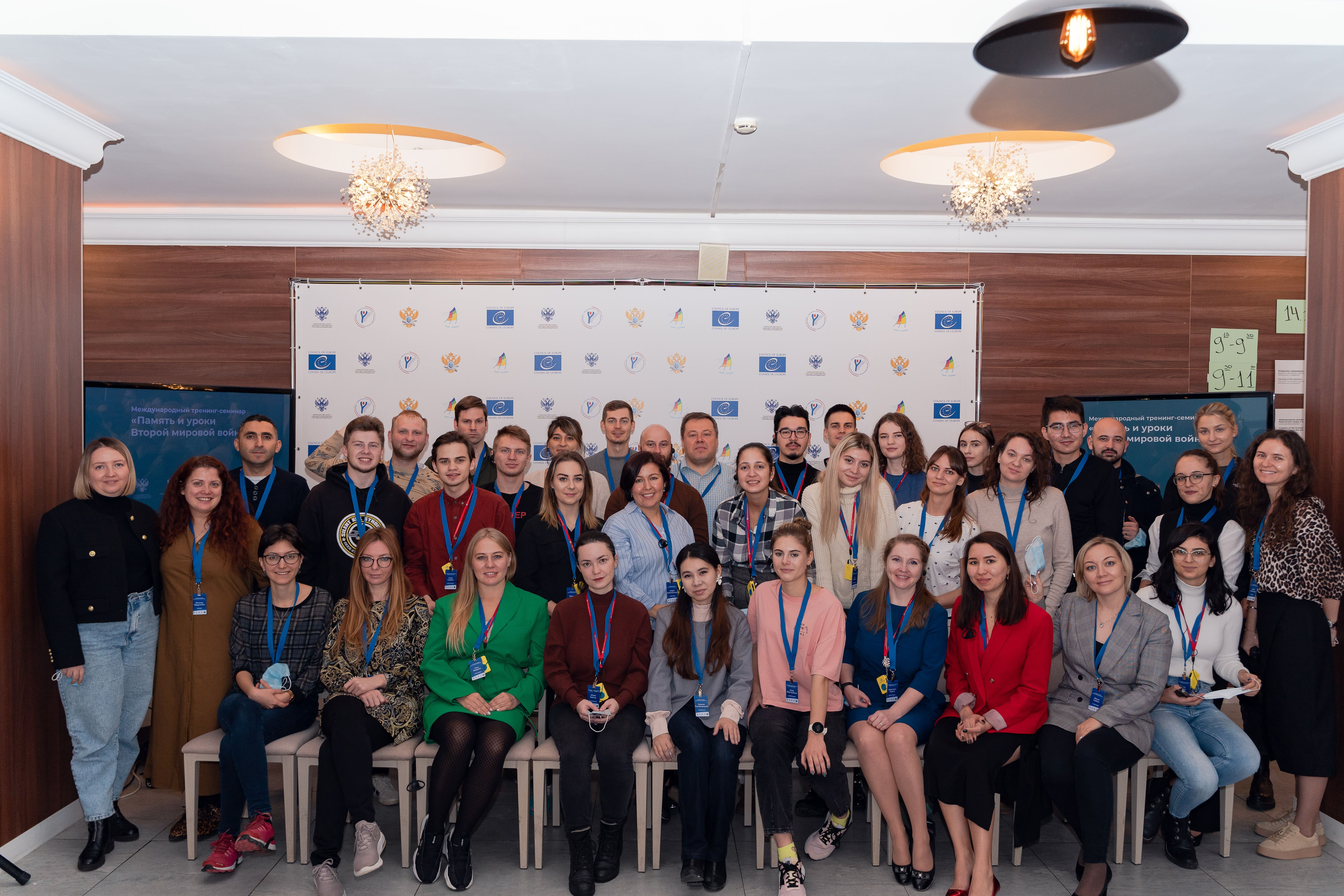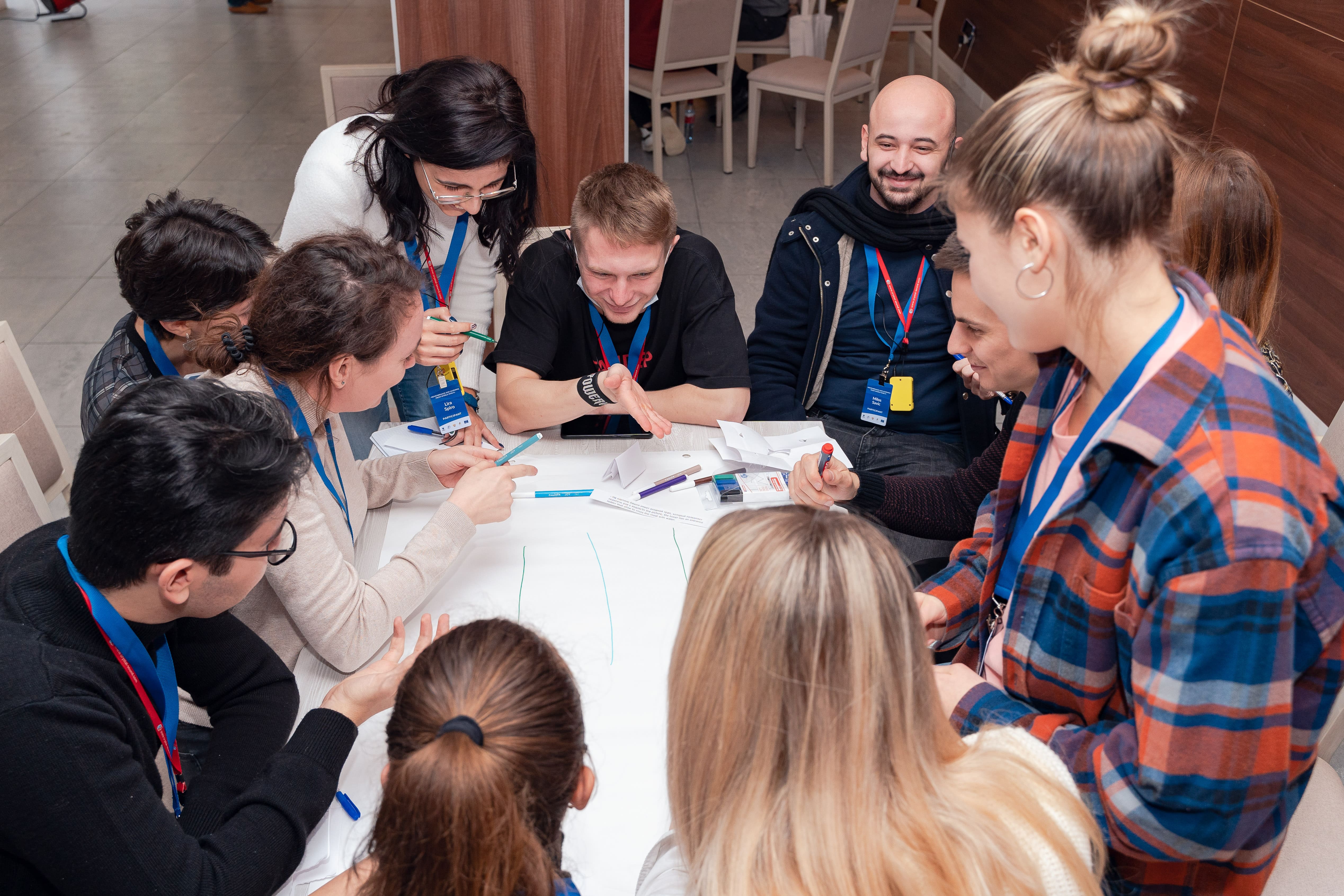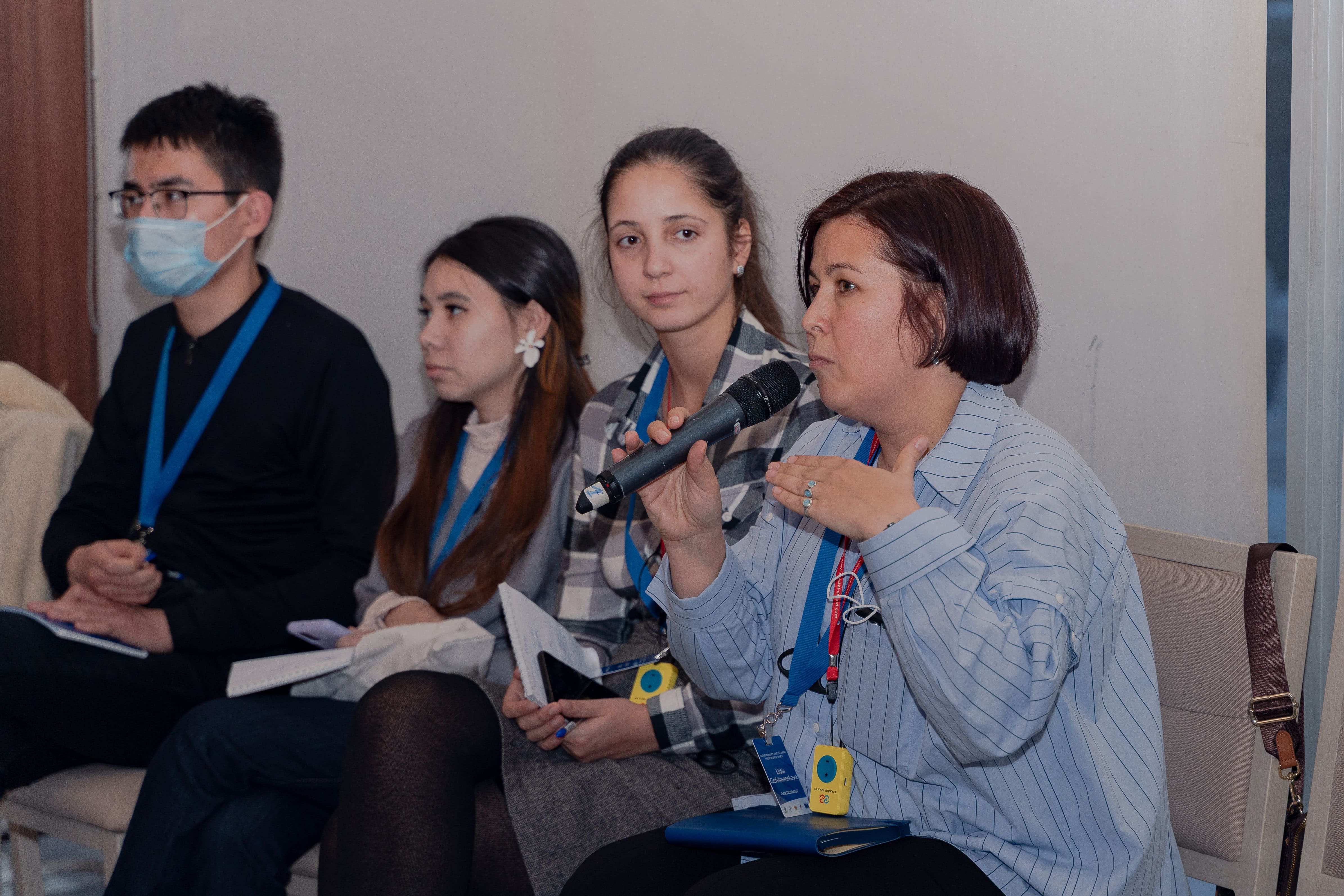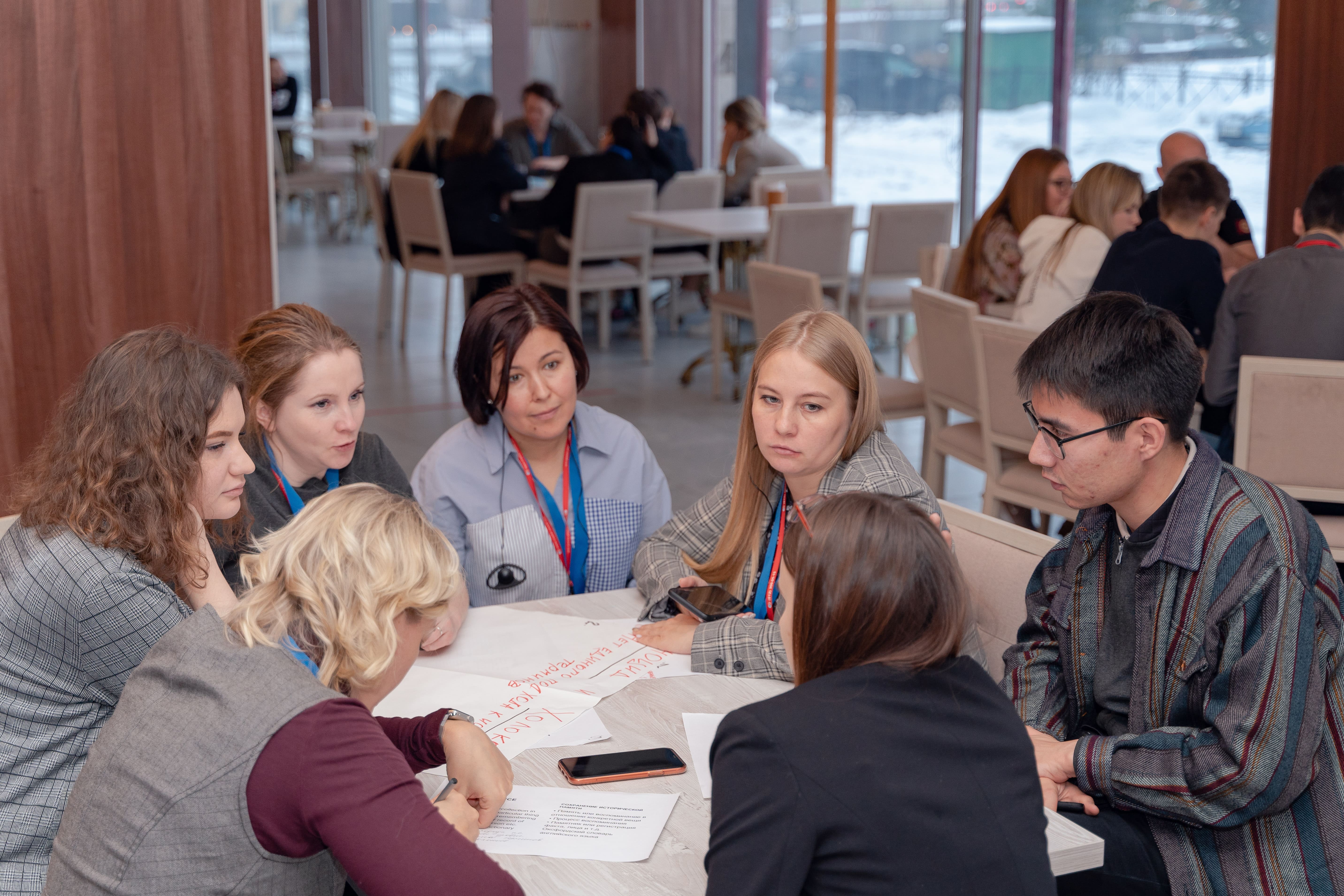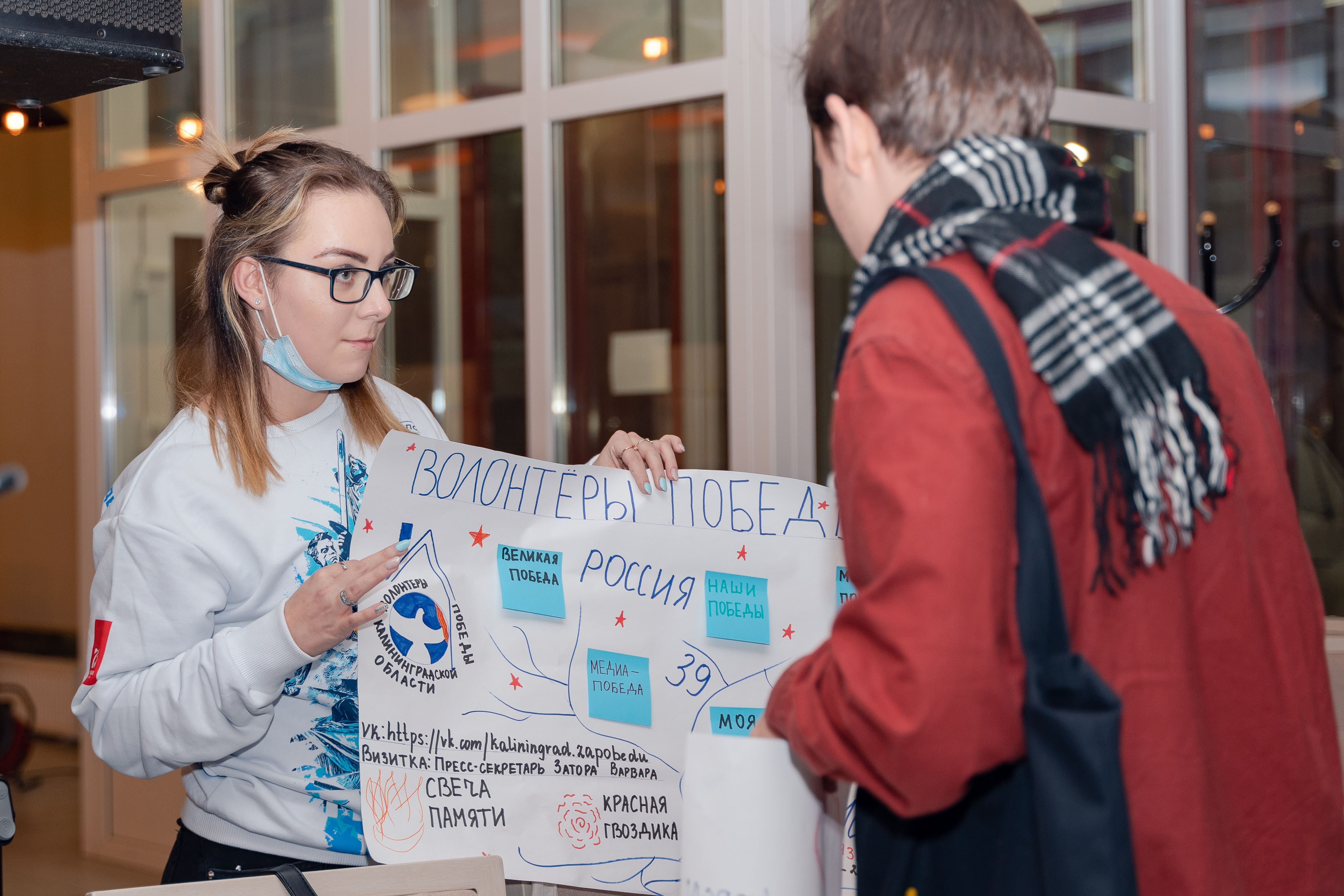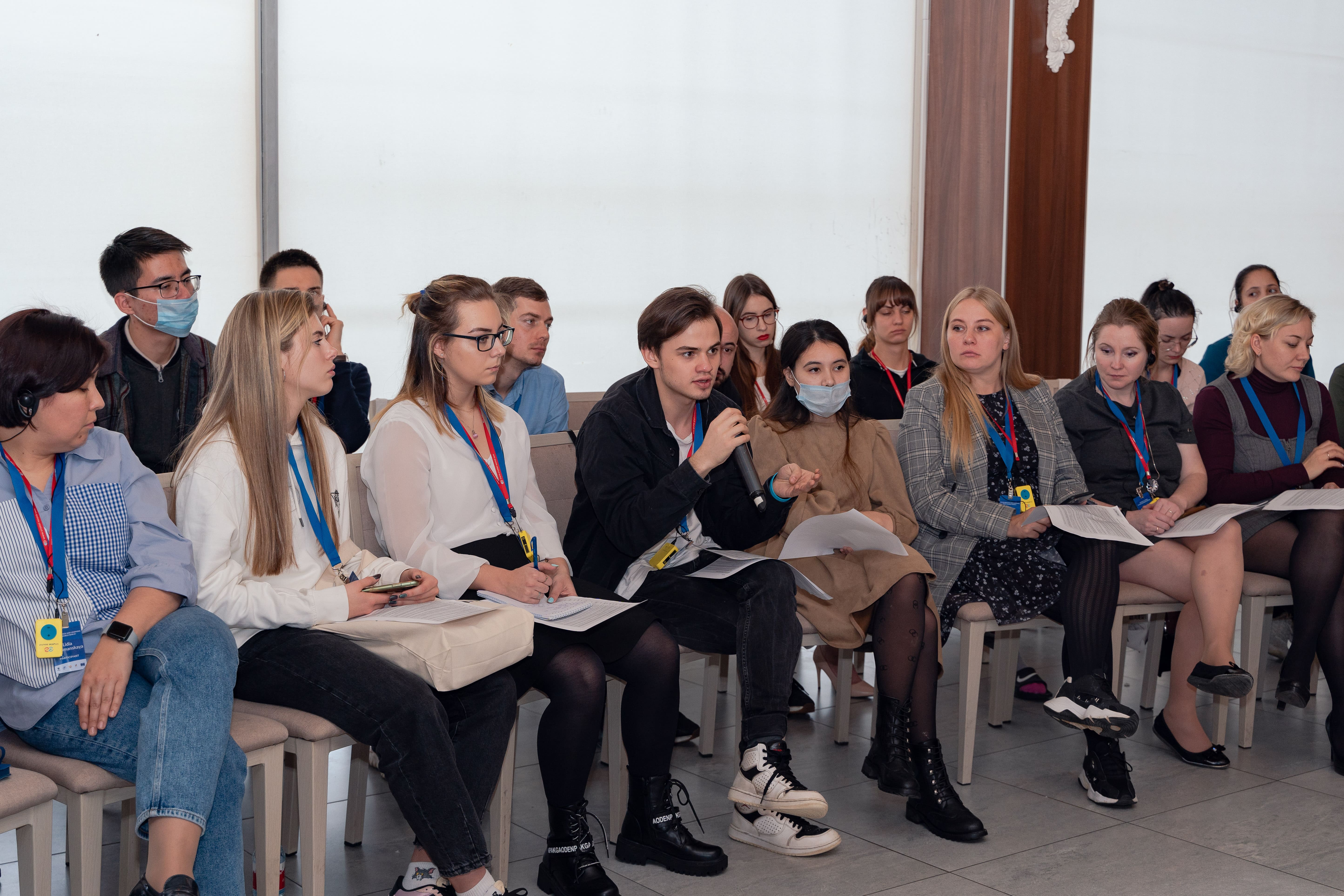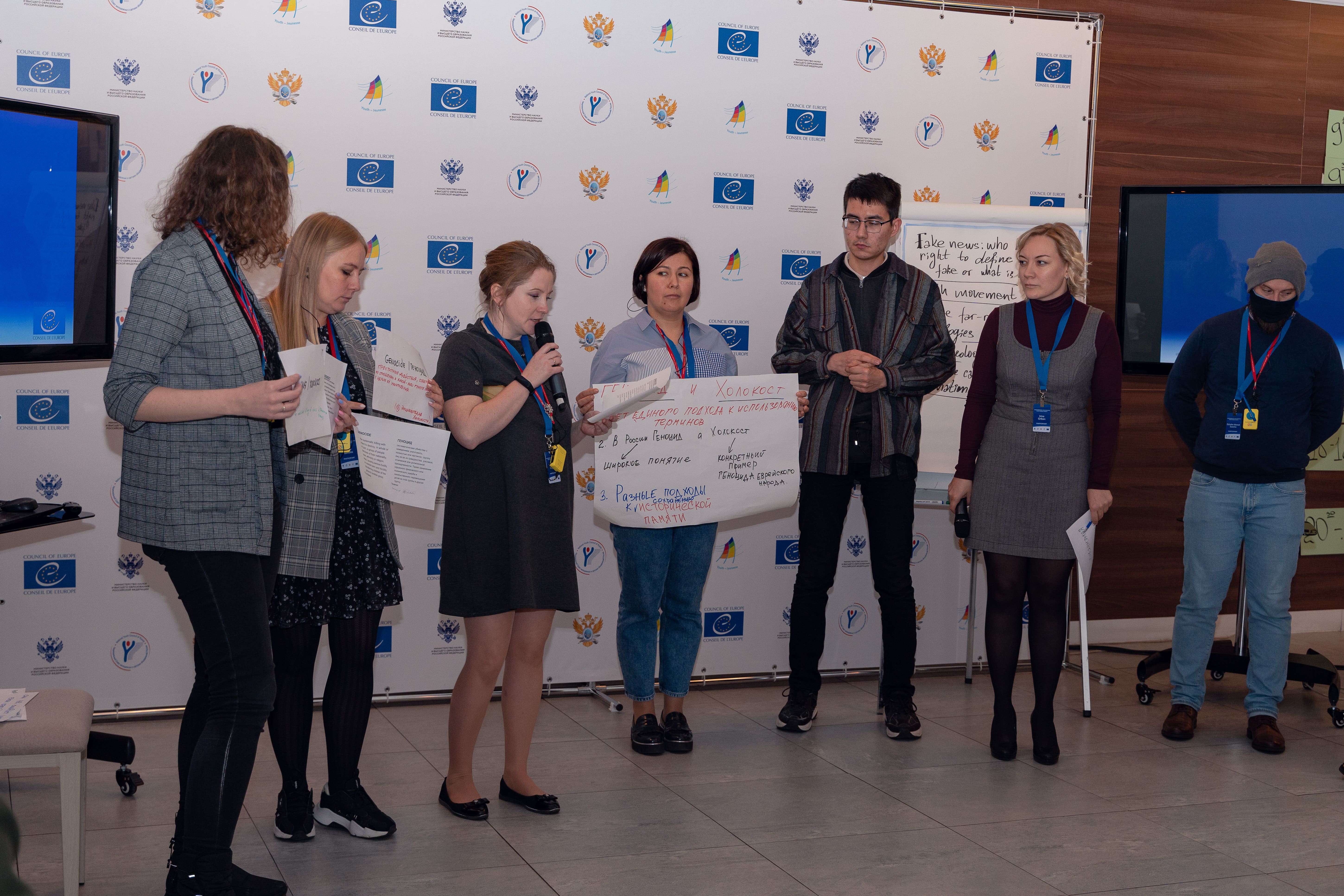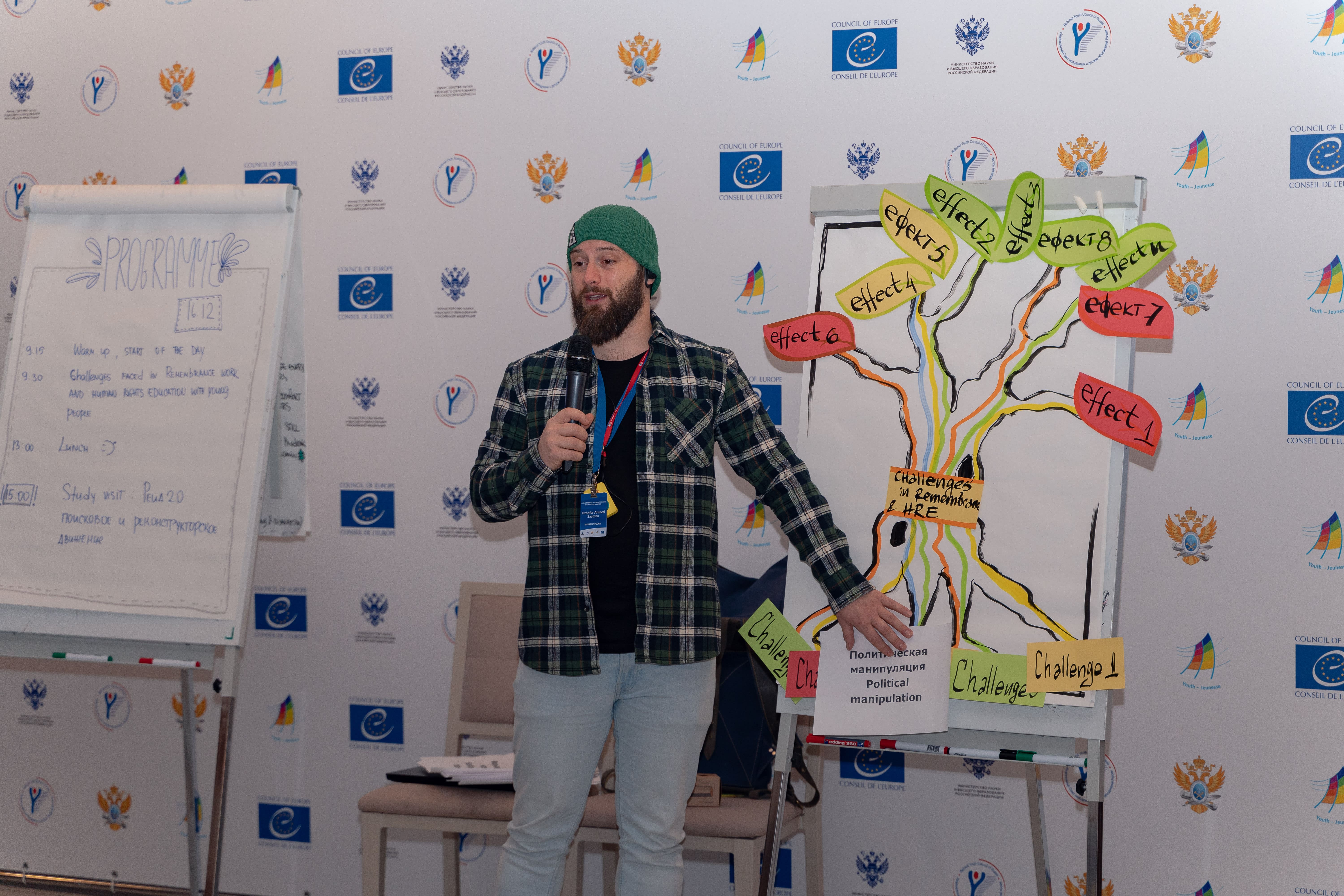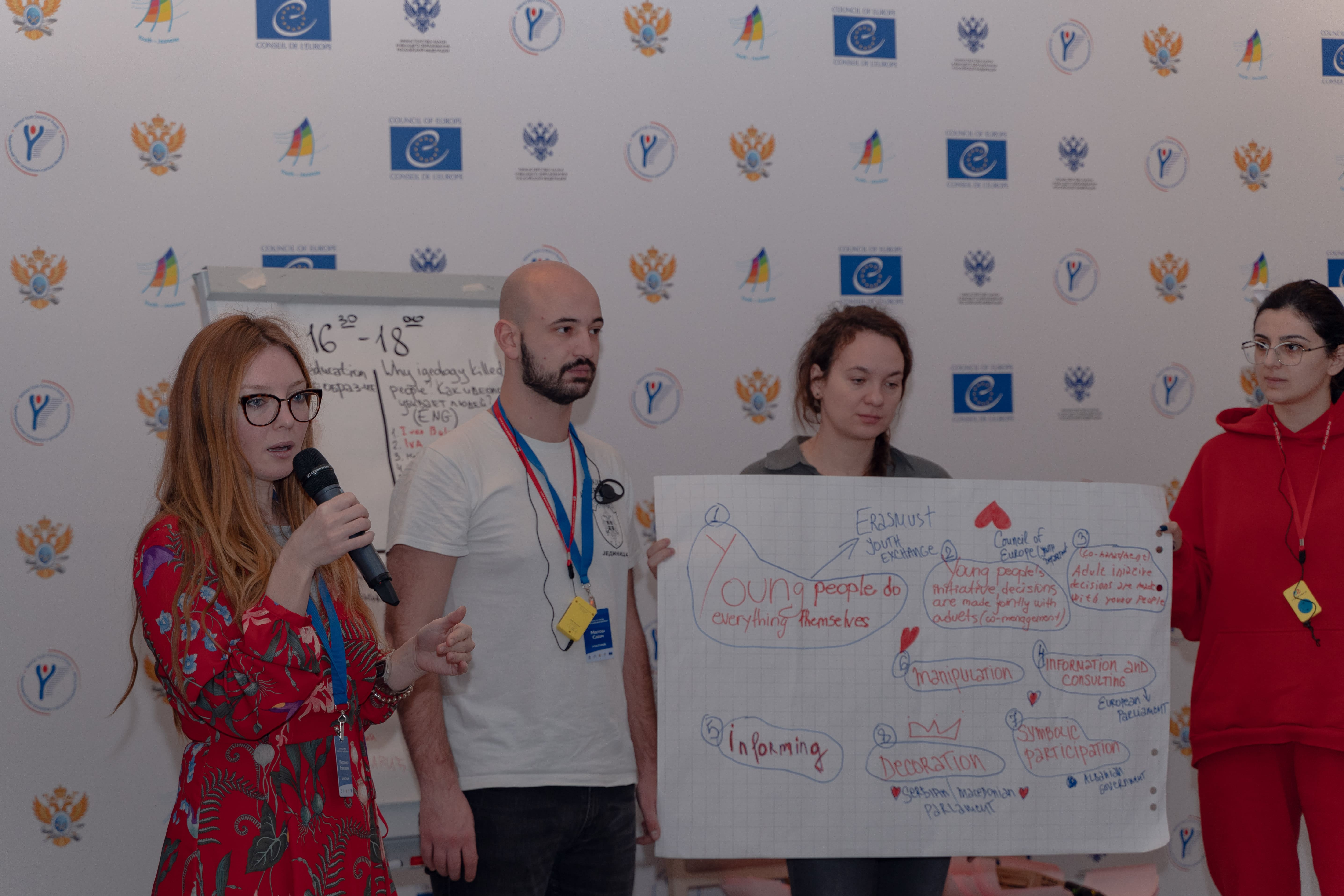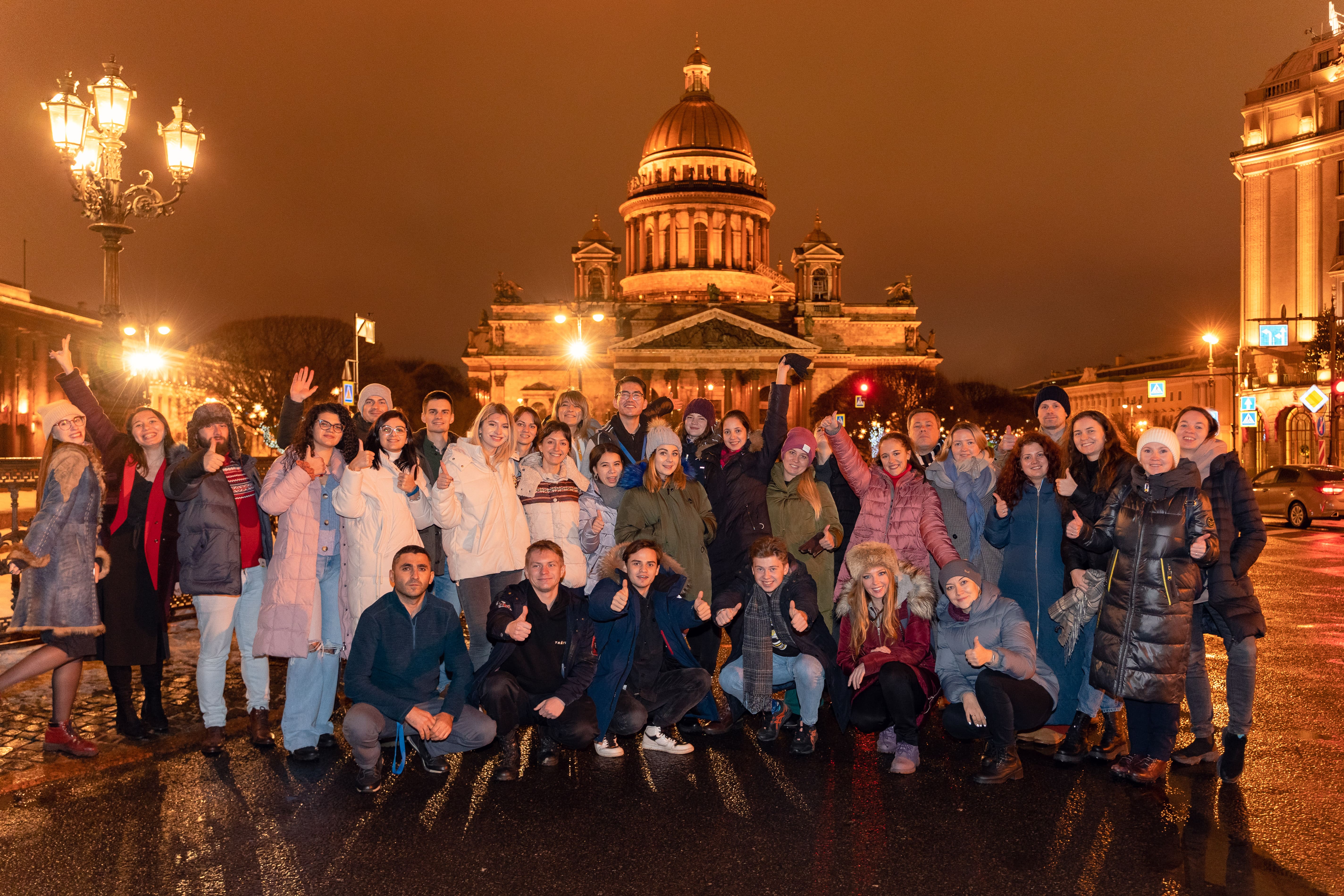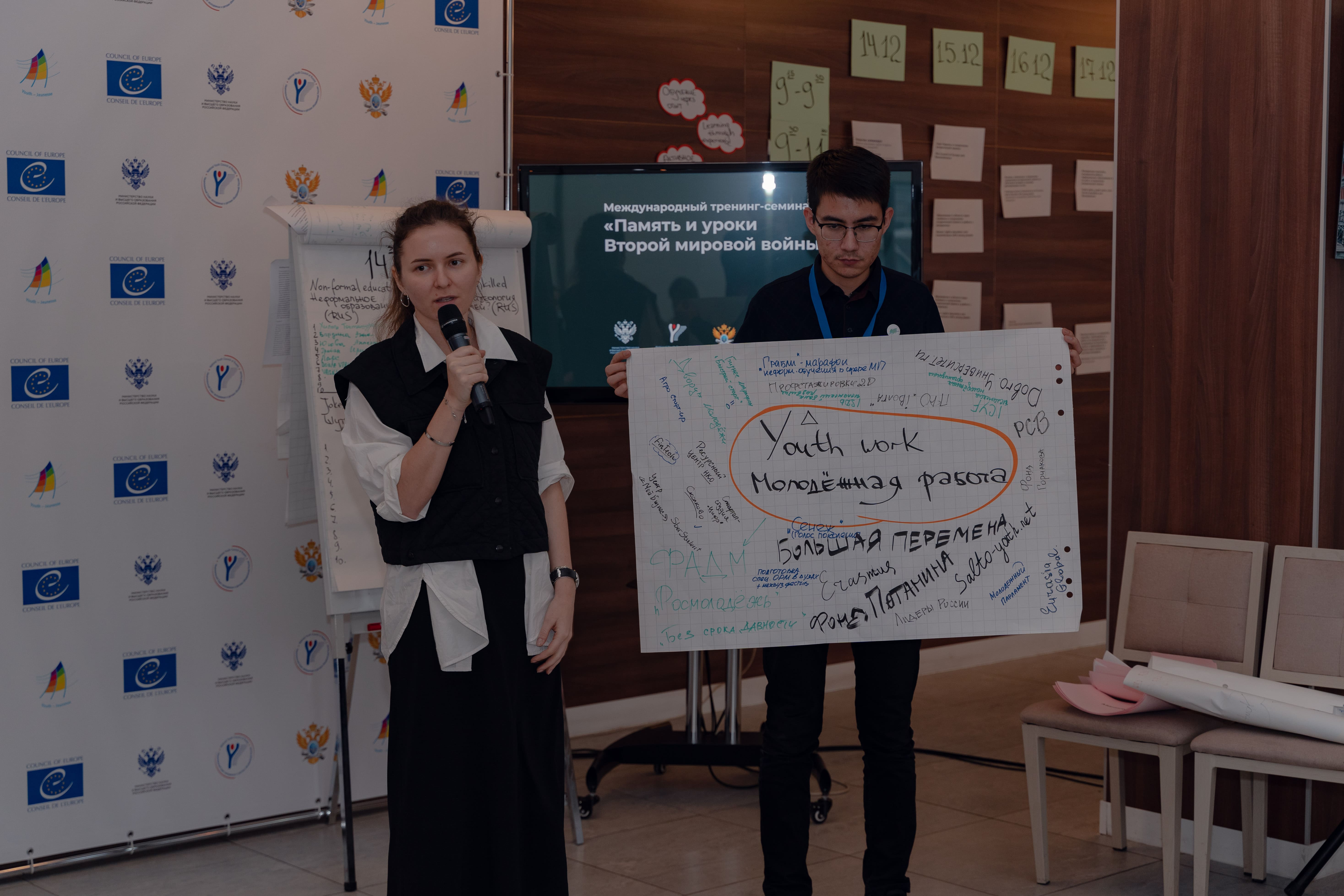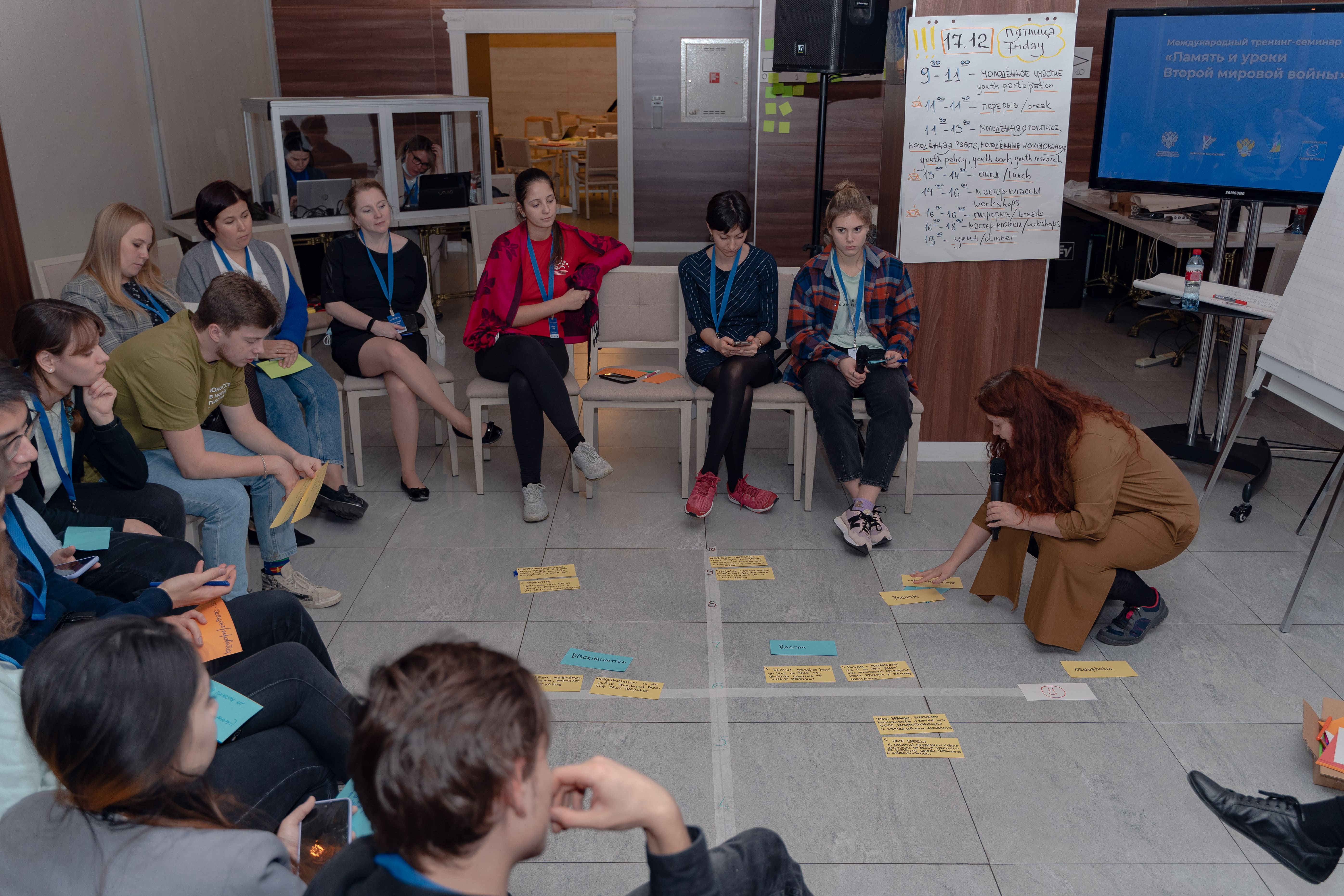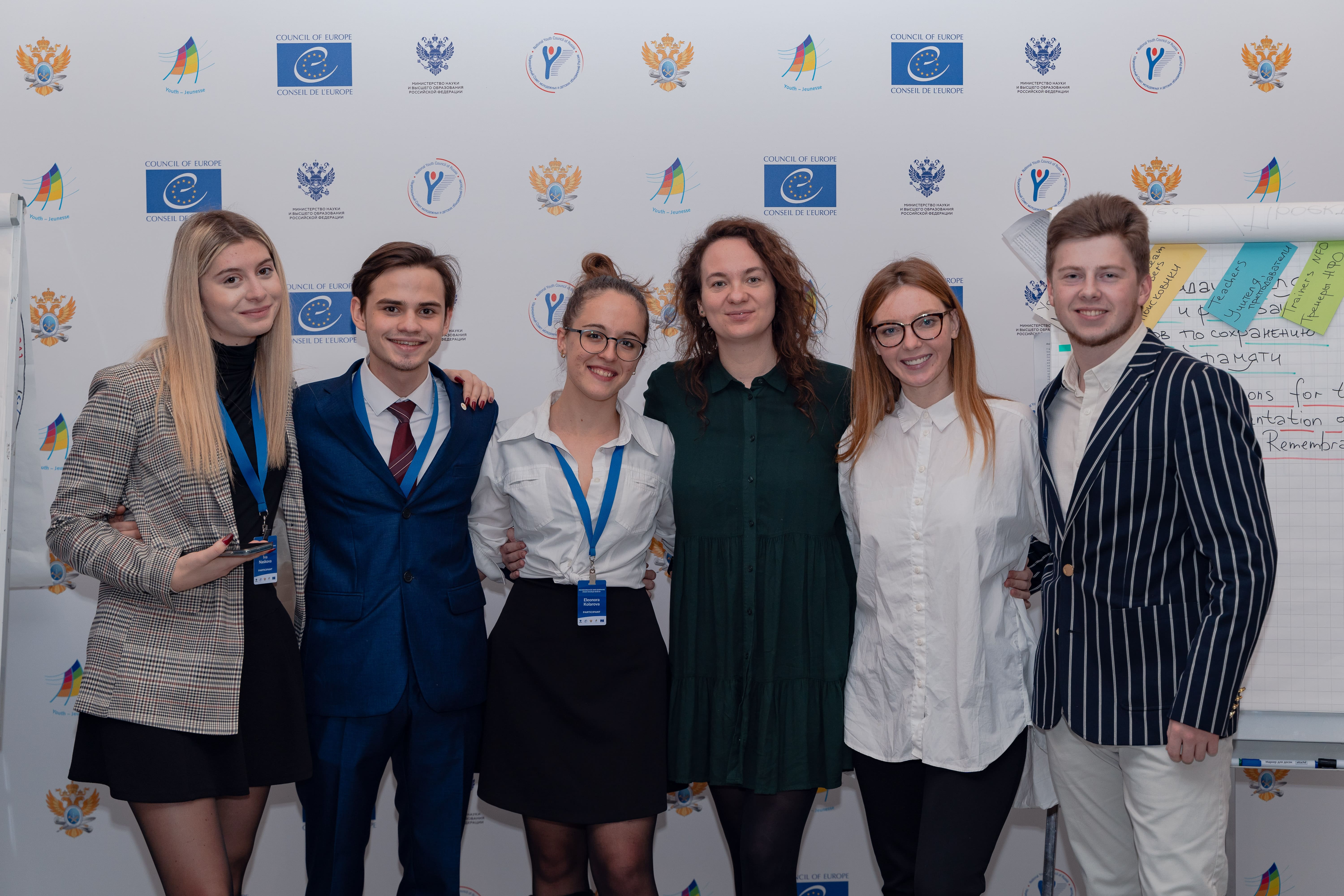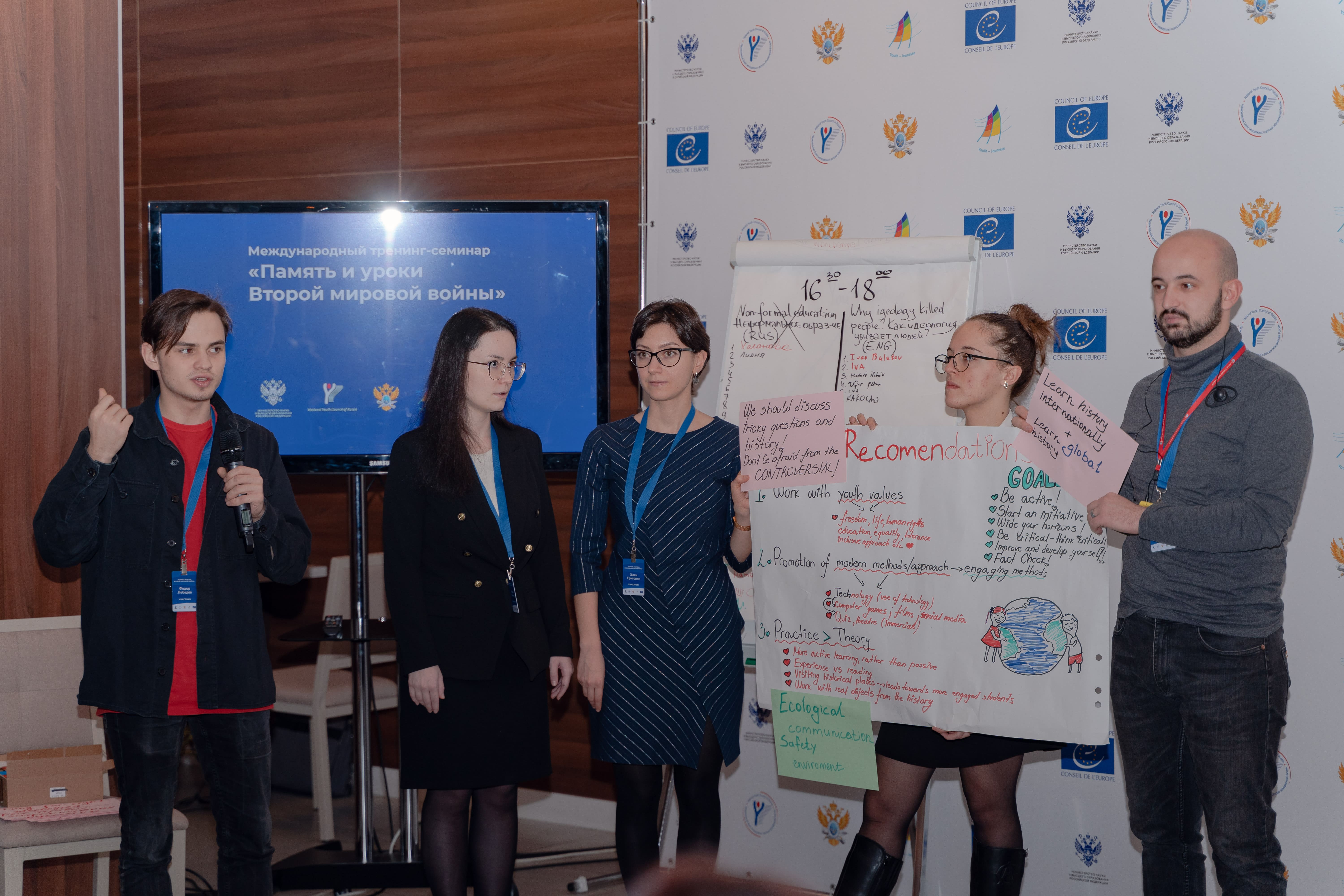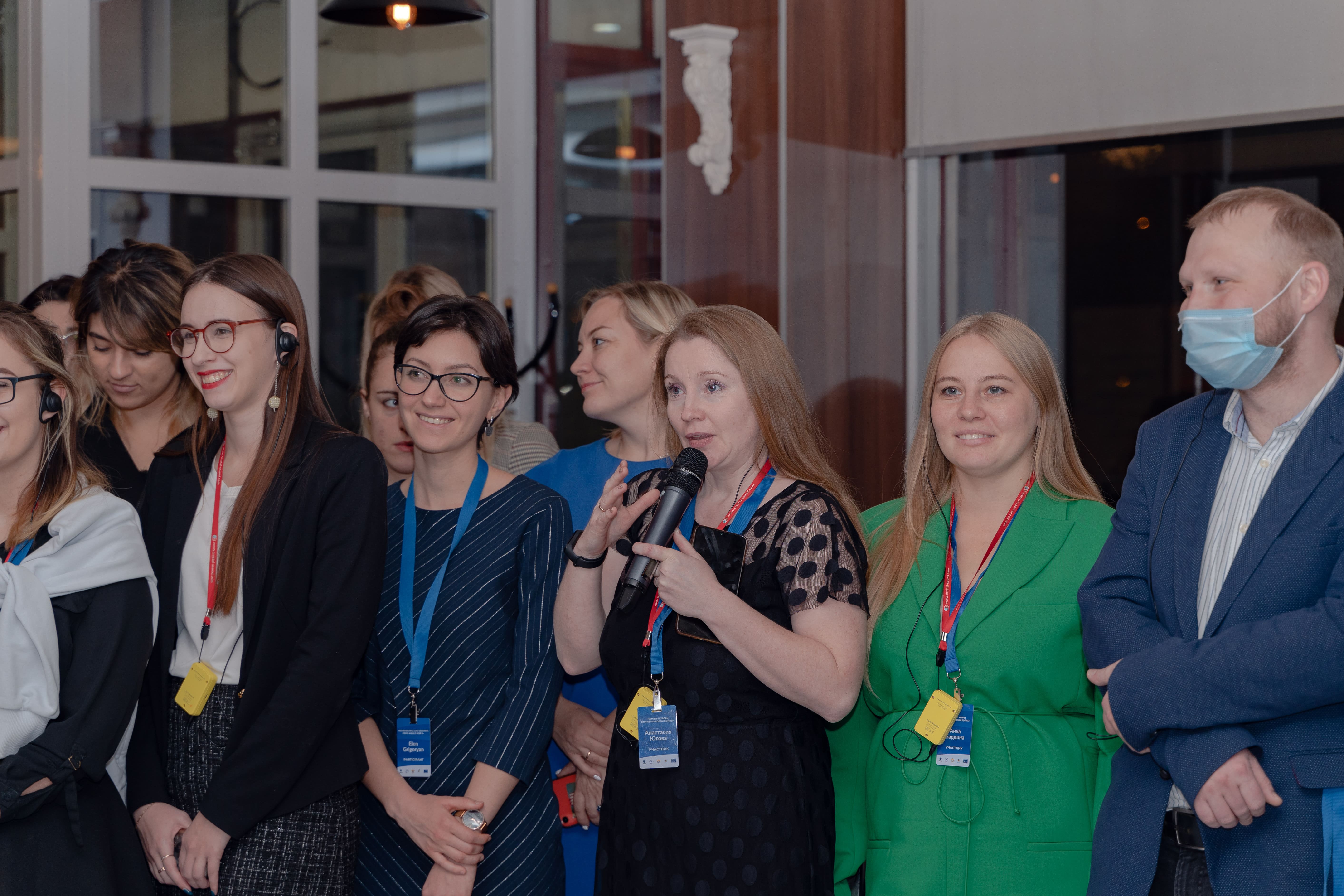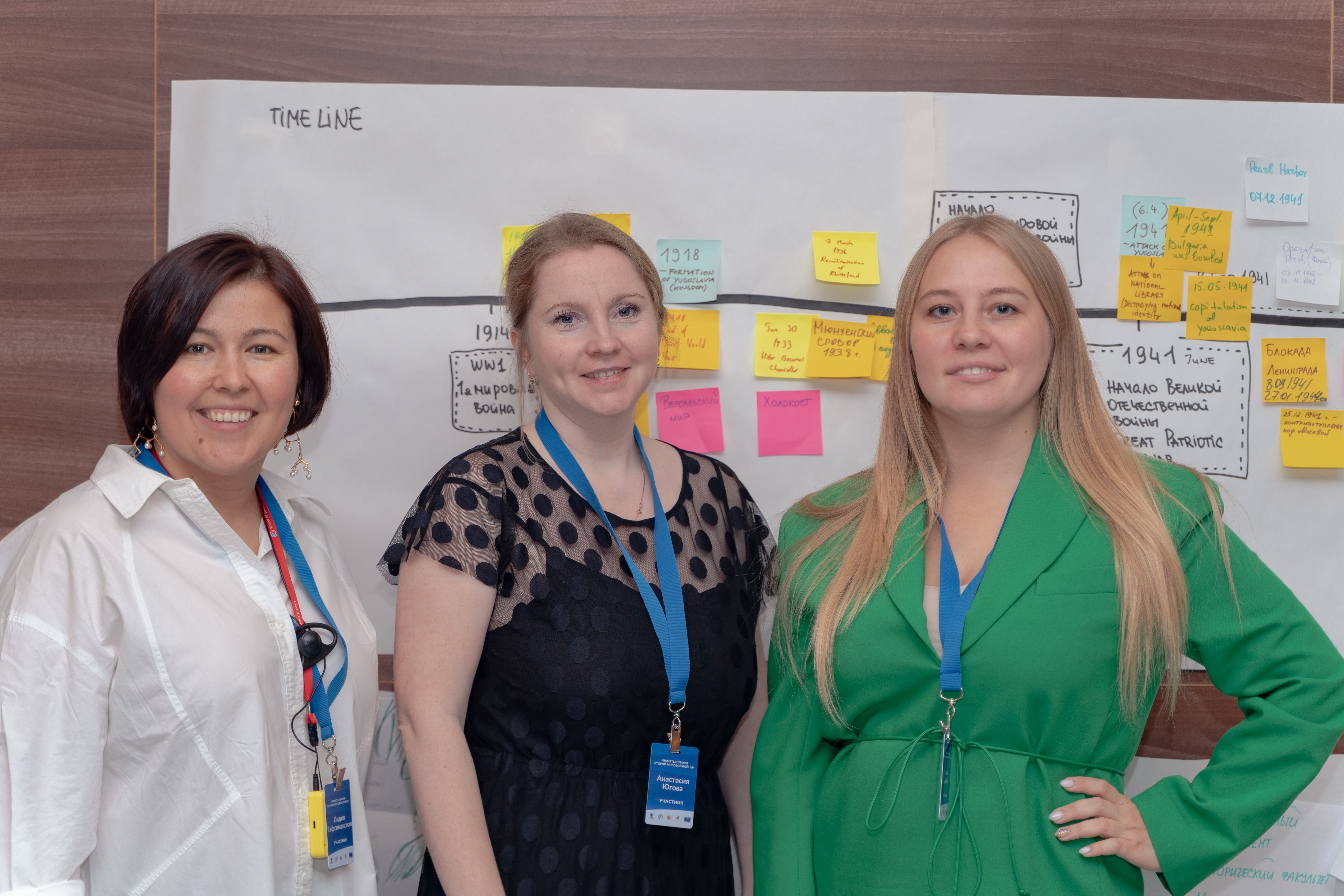From December 14 to 19, 2021 in a face-to-face format in St. Petersburg, within the framework of cooperation between the Russian Federation and the Council of Europe in the field of youth policy, the International training seminar for young people on the preservation of historical memory in Europe "Memory and Lessons of the World War II" was held.
The International training seminar for young people on the preservation of historical memory in Europe "Memory and lessons of the World War II" is a part of the Action Plan for 2021 of the Framework Program on Co-operation between the Ministry of Science and Higher Education of the Russian Federation and the Council of Europe in the field of youth policy.
The purpose of the training seminar in 2021 is to discuss the significance and relevance of historical memory activities, starting with, but not limited to, issues related to the preservation of historical memory of the World War II, and to equip the participants with the skills to act as multipliers of education for the preservation of historical memory when interacting with young people in the framework of international, national or local events.
Tasks:
- To strengthen participants' understanding of the concepts of preserving historical memory, human rights and intercultural dialogue,
- To create a space for the exchange of views and critical reflection on the experience of participants concerning holding events for the preservation of historical memory, especially events for young people,
- To discuss and analyze the relationship between youth policy, youth work and education in the field of historical memory and human rights,
- To develop the participants' competencies in the field of human rights education, paying special attention to the preservation of historical memory,
- To discuss the challenges associated with the preservation of historical memory and the teaching of history (including historical revisionism, falsification and manipulation of facts about historical events), as well as ways to respond to them,
- To increase the role of the Council of Europe, the Russian Federation as its member state and partner youth organizations in the defense of democracy, human rights and the rule of law in Europe.
During the five-day event, the participants learned about the foundation of international organizations after World War II, such as the United Nations and the Council of Europe, their policies in the field of citizenship education and remembrance, approaches to the study and teaching of history in the Council of Europe and in the Russian Federation, considered the history of the war through the prism of personal stories, analyzed the role of youth policy, youth work, human rights education and non-formal education in the preservation of historical memory, discussed modern tools for working with young people on the topic of preserving historical memory and developed recommendations for holding youth events to preserve historical memory. They also discussed the challenges associated with the preservation of historical memory and the teaching of history (including historical revisionism, falsification and manipulation of facts about historical events), as well as ways to respond to them, took part in master classes “Non-formal education – how to use tools in the work on the preservation of historical memory?”, “Why do people support far-right movements? How does ideology kill people?”, “Where is the line between jokes and discrimination?”, “Fake news. Who, how and why does it?”, visited the Center for Search and Reconstruction Movement "Raid 2.0", went on the sightseeing tour about St. Petersburg, etc.
From year to year, the training seminar arouses interest from the participants, helps to emphasize the importance of preserving historical memory and its transmission to new generations, contributes to increasing the interest of European youth in the history of World War II, understanding the significance of its results for the formation of a world order based on international law.
Participants: 40 participants from signatory countries of the European Cultural Convention and member countries of the Commonwealth of Independent States, as well as from other countries who are directly interested and connected with the issues of the training seminar – the leaders of youth public organizations, youth work specialists, representatives of the search movement, memorial objects and museums, young diplomats, politicians and scientists.
Outcomes: The event drew attention to the importance of preserving historical memory and its transmission to new generations, contributed to increasing the interest of young people in the history of the World War II, understanding the significance of its results for the formation of a world order based on international law.
Participants analyzed the role of youth policy, youth work, human rights education and non-formal education in the preservation of historical memory, discussed modern tools for working with young people on the topic of preserving historical memory and developed recommendations for holding youth events to preserve historical memory, discussed the challenges associated with the preservation of historical memory and the teaching of history, as well as ways to respond to them.








